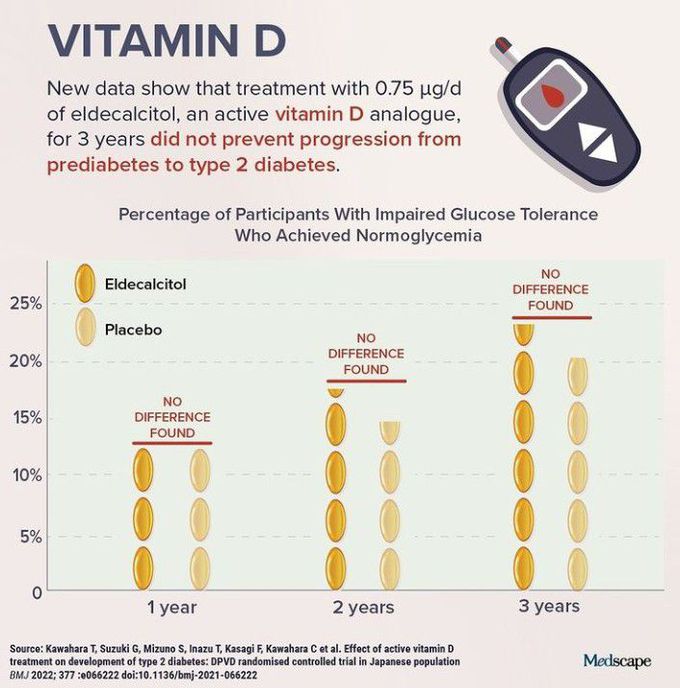

Vitamin D
Experts have suggested that the interest in vitamin D supplementation is so strong that it is seemingly impervious to evidence. Nevertheless, research into the connection between the nutrient and various health conditions continues. Recent findings have examined links to diabetes, obesity, and breast cancer. Interest in those studies resulted in vitamin D once more becoming the top trending clinical topic of the week. Among the notable research was a new study reiterating an old finding. The new findings come from the prospective Diabetes Prevention with active Vitamin D trial of more than 1200 Japanese participants with impaired glucose tolerance. Data show that vitamin D supplementation also failed to improve the rate of regression to normoglycemia compared with placebo. In an accompanying editorial, Tatiana Christides, MD, PhD, writes that the new trial is "well conducted, with rigorously defined and tested diagnostic criteria, and of sufficient duration, but it may have been underpowered to detect a small effect." She points to a recent meta-analysis of intervention trials, which found a significant 10% reduction in risk for type 2 diabetes with vitamin D supplementation. Christides adds that this was "a difference too small to be detected by the new trial...Although a 10% risk reduction is modest, it may be valuable at the population level and justifies further study."
